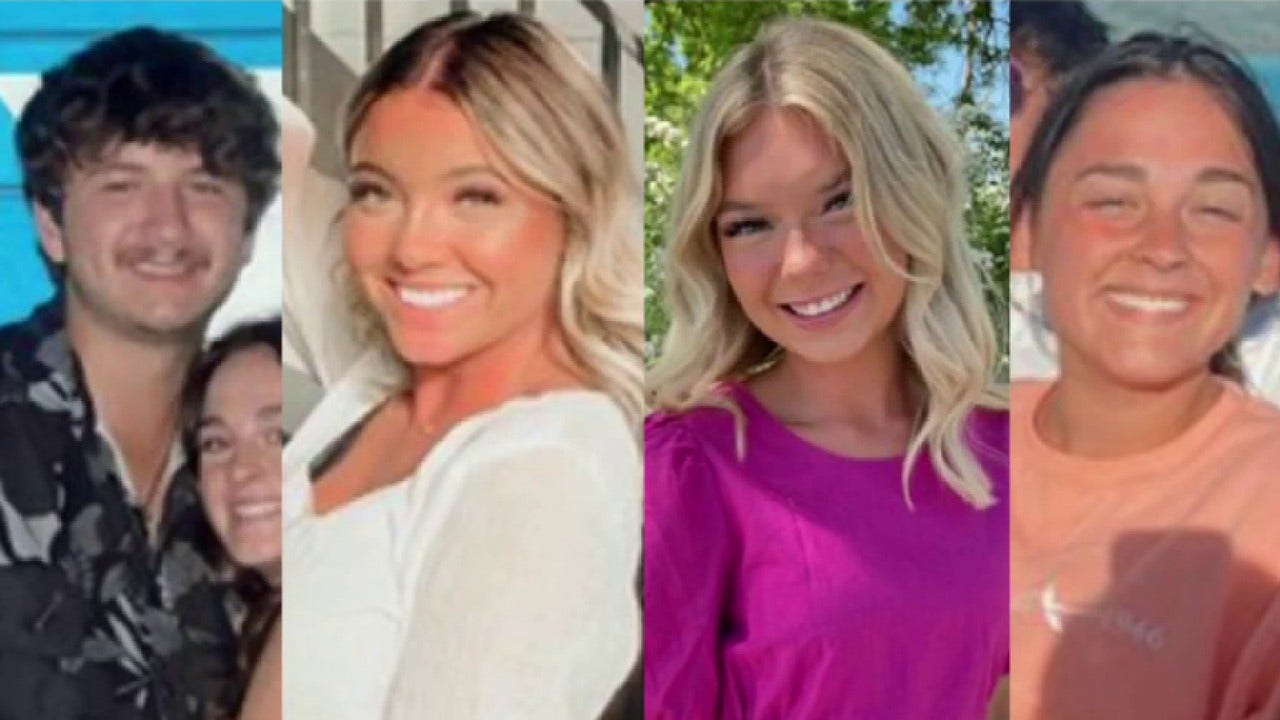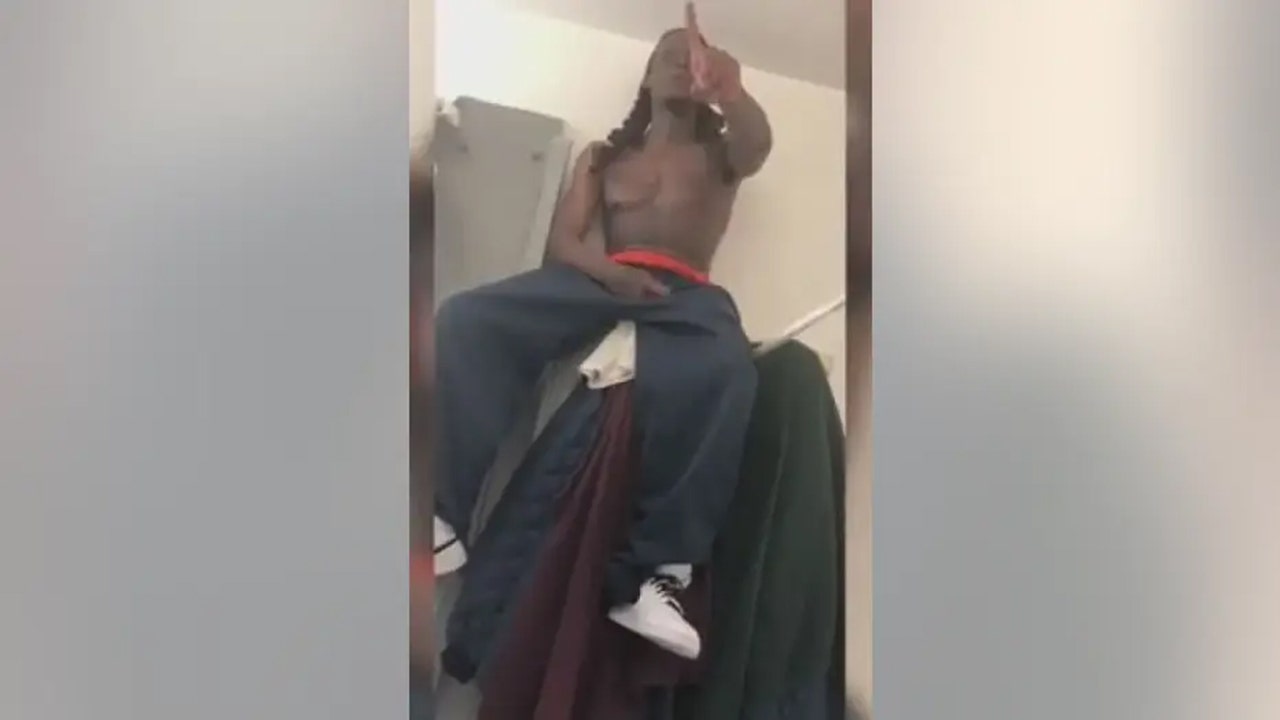education” target=”_blank”>Local school board meetings<, parents issued fiery denunciations of school boards, protested and even pursued recall elections against local officials.
The battle over critical-race-theory” target=”_blank”>critical race theory (CRT)<, parents criticized the district’s equity materials. While other districts in the U.S. had dealt with the issue, Loudoun appeared to gain the most attention, and the state as a whole would become a test case for the political saliency of education.
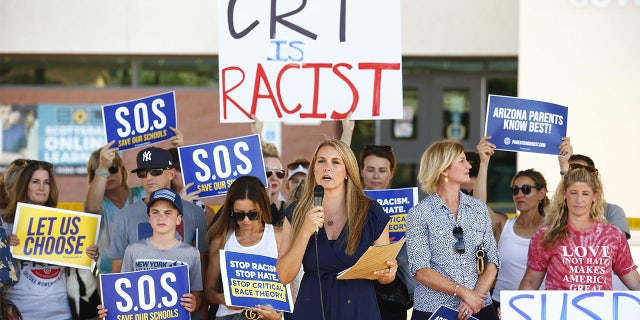
Amy Carney speaks on behalf of parents during a protest against critical race theory being taught at Scottsdale Unified School District before a digital school board meeting at Coronado High School in Scottsdale May 24, 2021.
(Reuters)
Across the country, parents have alleged that school officials failed to adequately respond or retaliated against them for raising concerns about content in schools. Loudoun was no different. Early in 2021, the county was rocked by news that a group of parents had been attempting to compile a list of other residents who opposed CRT.
The relative novelty of some of the content’s claims also helped draw attention to the issue. For example, Fox News previously reported on Oregon promoting a teacher training program that sought to dismantle racism in mathematics. One of the materials claimed, among other things, that White supremacy was behind the focus on finding the right answer.
VIRGINIA ELECTION TIMELINE: HOW EDUCATION BECAME CRUCIAL TO REPUBLICANS’ VICTORY
That material also popped up in California, which saw plenty of controversy surrounding material like chanting to an Aztec god that accepted human sacrifice. Examples like that proliferated as Parents Defending Education (PDE), Parents Against Critical Theory and other anti-CRT groups dug into educational plans across the country. Anti-CRT researcher Chris Rufo, who uncovered the Aztec prayer, continually injected CRT into 2021’s national dialogue as his reporting highlighted example after example of racial content in schools and corporations.
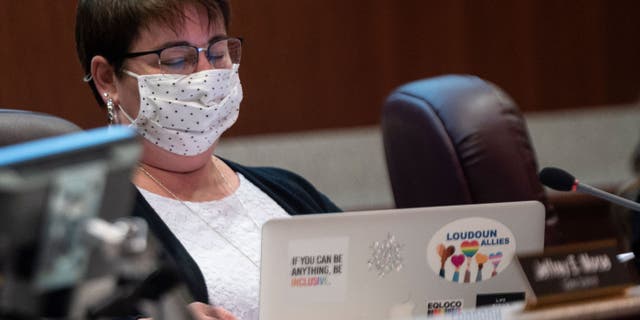
School board member of Loudoun County Public Schools Brenda Sheridan looks at her laptop during a public school board meeting in Ashburn, Va., on Oct. 12, 2021. (Andrew Caballero-Reynolds/AFP via Getty Images)
Private entities like Grace Church School (GCS) also encountered fierce debates over identity and individuals like Andrew Guttman speaking out against controversial curricula. Math teacher Paul Rossi ignited a media firestorm when he published an op-ed criticizing the school, which proceeded to limit his responsibilities.
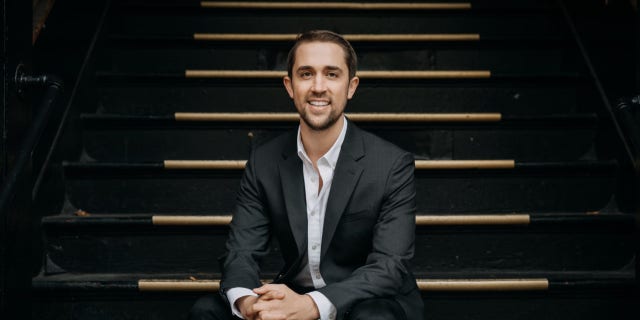
Christopher F. Rufo is a senior fellow at the Manhattan Institute and a contributing editor of City Journal.
(Christopher F. Rufo)
Meanwhile, more politically focused organizations like Fight for Schools PAC and 1776 Action had formed to combat CRT in local elections.
Glenn Youngkin, along with the other major GOP gubernatorial candidates, signed onto 1776 Action’s anti-CRT pledge that also gained traction in places like South Dakota. And by May, CRT opponents were claiming victory after a Dallas-area school board election went to candidates who spoke out on the controversial issue.
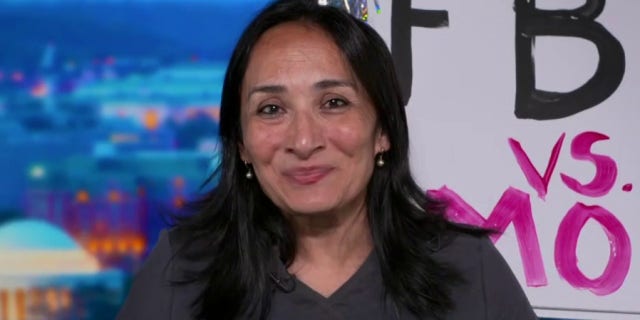
Asra Nomani, Virginia parent, on Fox News Primetime.
(Fox News)
Things really started to heat up in May when elementary school teacher Tanner Cross was suspended after comments he made criticizing the district’s gender-related policy proposals. That led to an explosive meeting in June where at least one father was arrested, setting the stage for a much bigger conflagration in October.
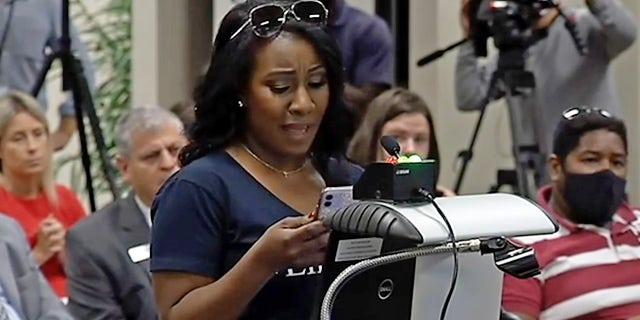
Keisha King, Florida mom, speaks out against critical race theory.
(Fox News)
At the national level, media outlets began covering CRT more intensely after that meeting. Many media outlets compounded school districts’ narrative that CRT wasn’t being taught in staff trainings and curricula. Virginia Democrat Terry McAuliffe went so far as to say the hubbub over CRT was a “right-wing conspiracy.”
But that claim encountered pushback as parents pointed to source material for CRT and critical theory more generally. Loudoun officials themselves had acknowledged that CRT influenced their work in some way, and intellectuals like James Lindsay were speaking about how school materials were all-too-similar to critical theorists’ writings.
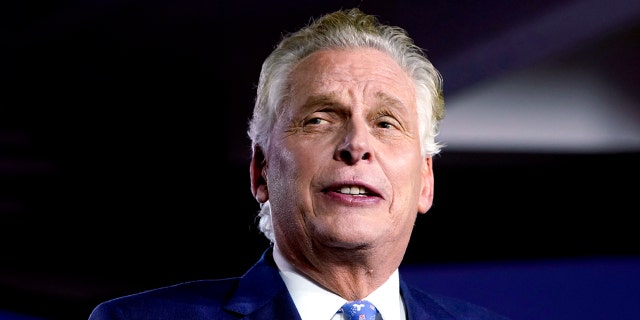
Democratic gubernatorial candidate Terry McAuliffe speaks at an election night party in McLean, Va., Tuesday, Nov. 2, 2021.
(AP Photo/Steve Helber)
By October, the issue had swept national media outlets and was already a prominent part of then-GOP nominee Youngkin’s campaign rhetoric. Virginia was facing an off-year election and effectively became the national stage for education and CRT. This was only amplified by the Daily Wire’s reporting that the man arrested during June’s school board meeting was the father of a girl sexually assaulted in one of Loudoun’s high schools. The assailant reportedly identified as nonbinary, further fueling the already contentious debate about gender in the county.
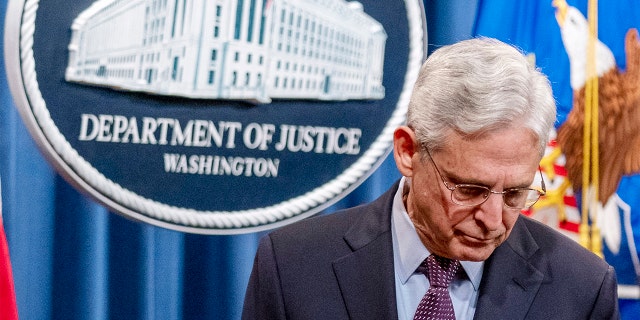
Attorney General Merrick Garland steps away from the podium after speaking at a news conference at the Justice Department in Washington Nov. 8, 2021. (AP Photo/Andrew Harnik)
Meanwhile, contentious school board meetings across the country appeared to prompt serious concerns among groups like the National School Boards Association (NSBA) and National Education Association, whose Rhode Island affiliate sued a mom seeking extensive public records requests.
CLICK HERE TO GET THE FOX NEWS APP
NSBA eventually sent the White House a letter in which it suggested that parents were engaging in domestic terrorism through their alleged intimidation of school board members.
Attorney General Merrick Garland’s memo launching an investigation on the issue in response likely amplified parents’ perception that they faced strong and widespread opposition from powerful institutions. That included corporations like diversity consultants, which received heightened scrutiny after it was discovered that Garland’s son-in-law founded a pro-CRT company contracting with school districts across the country.
November finally saw the victory CRT opponents expected when Republican Glenn Youngkin and his fellow candidates seemed to halt the blue tide that had been changing Virginia’s political composition for years with their red sweep of Virginia’s top statewide positions at the ballot box.
Commentary by conservatives honed in on, among other things, Democratic nominee Terry McAuliffe’s controversial remarks about parents not having a role in deciding what teachers teach. In the aftermath, Republicans began speculating that Virginia is a sign of things to come in the 2022 midterms.







